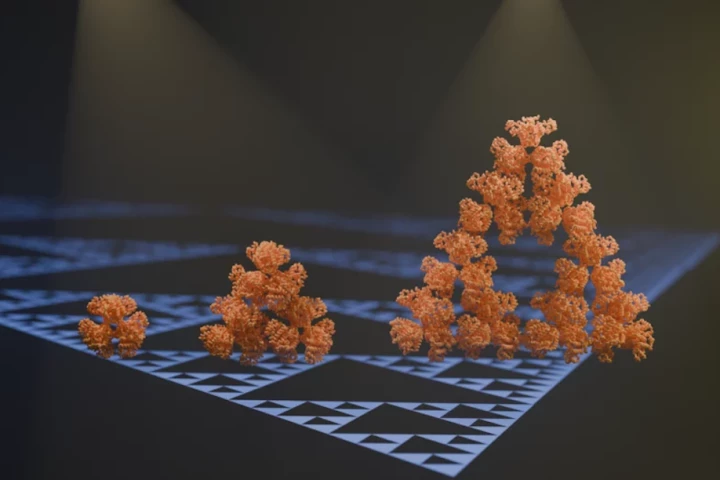Mathematics
-
We generally associate the origins of mathematical thinking with the emergence of writing but a new study challenges this assumption looking at floral designs found on the pottery sherds across northern Mesopotamia, dating back 8000 years.
-
For nearly a century, a strange band of 5,200 holes carved into a hillside has defied explanation. Stretching for nearly a mile along the edge of the Pisco Valley, Monte Serpe – "serpent mountain" – may have finally revealed its secrets to scientists.
-
Spots and stripes serve many purposes in nature, but how they form has been more of a mystery. Now, researchers have advanced their breakthrough theory – and it could help us design materials that can respond to the environment and change color on demand.
-
New research details an intriguing new way to solve "unsolvable" algebra problems that go beyond the fourth degree – something that has generally been deemed impossible using traditional methods for two centuries, until now.
-
Have you ever wondered why walking from point A to B can be easy in some places, and incredibly frustrating in others? Well, scientists have uncovered the mathematical equation that underpins how foot traffic can collectively descend into utter chaos.
-
How do you keep a glass of beer cold the longest? With science, of course. That's what one researcher has turned to, finding the optimal shape of drinking vessel that will keep a poured beer chilled for as long as possible while you drink it.
-
Along with Schrödinger’s Cat, the Infinite Monkeys Theorem is one of the most famous thought experiments. A new study, with tongue firmly in cheek, has calculated that you might be waiting seven googol years for your Shakespeare.
-
The world's largest known prime number has been discovered, but we can't show it because it's so large it would take up 21 standard-sized novels to turn into text. Called M136279841, it comes to 41,024,320 digits.
-
Less than a year ago we told you about the Tiroler, a titanium ring that's a rather clever alternative to the boring ol' tape measure. Well, its makers are back with a new take on the concept, which also performs calculations.
-
Fractals are a fascinating type of pattern for mathematics nerds, with their repeating, artificial-looking structures. Now, scientists have discovered the first known fractal protein – and it seems to be an evolutionary accident.
-
Historians have discovered what may be the world's first decimal point, in an ancient manuscript written 150 years before its next known appearance. There have been many ways to split integers, but this little dot has proven uniquely powerful.
-
We’ve all accidentally tied knots that we can’t untangle – but we don’t expect to win any world records. Now scientists have done exactly that, accidentally tying the world’s smallest and tightest knot in a tiny structure made of just 54 atoms.
Load More











